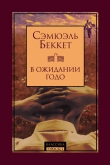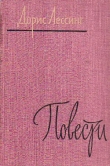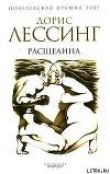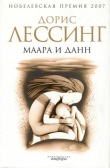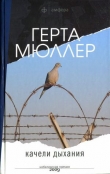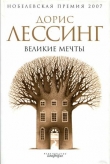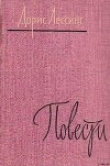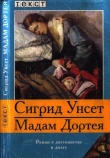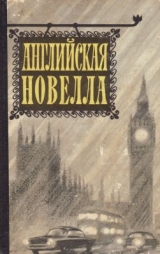
Текст книги "Саранча. Колдовство не продаётся"
Автор книги: Дорис Лессинг
Жанр:
Современная проза
сообщить о нарушении
Текущая страница: 2 (всего у книги 3 страниц)
A Mild Attack of Locusts
The rains that year were good, they were coming nicely just as the crops needed them – or so Margaret gathered when the men said they were not too bad. She never had an opinion of her own on matters like the weather, because even to know about what seems a simple thing like the weather needs experience. Which Margaret had not got. The men were Richard her husband, and old Stephen, Richard's father, a farmer from way back, and these two might argue for hours whether the rains were ruinous, or just ordinarily exasperating. Margaret had been on the farm three years. She still did not understand how they did not go bankrupt altogether, when the men never had a good word for the weather, or the soil, or the Government. But she was getting to learn the language. Farmer's language. And they neither went bankrupt nor got very rich. They jogged along, doing comfortably.
Their crop was maize. Their farm was three thousand acres on the ridges that rise up towards the Zambesi escarpment, high, dry windswept country, cold and dusty in winter, but now, being the wet season, steamy with the heat rising in wet soft waves off miles of green foliage. Beautiful it was, with the sky blue and brilliant halls of air, and the bright green folds and hollows of country beneath, and the mountains lying sharp and bare twenty miles off across the river. The sky made her eyes ache, she was not used to it. One does not look so much at the sky in the city she came from. So that evening when Richard said: 'The Government is sending out warnings that locusts are expected, coming down from the breeding grounds up North, her instinct was to look about her at the trees. Insects – swarms of them – horrible! But Richard and the old man had raised their eyes and were looking up over the mountains. 'We haven't had locusts in seven years, they said. They go in cycles, locusts do. And then: There goes our crop for this season!
But they went on with the work of the farm just as usual, until one day they were coming up the road to the homestead for the midday break, when old Stephen stopped, raised his finger and pointed: 'Look, look, there they are!
Out ran Margaret to join them, looking at the hills. Out came the servants from the kitchen. They all stood and gazed. Over the rocky levels of the mountain was a streak of rust-coloured air. Locusts. There they came.
At once Richard shouted at the cook-boy. Old Stephen yelled at the house-boy. The cook-boy ran to beat the old ploughshare hanging from a tree-branch, which was used to summon the labourers at moments of crisis. The house-boy ran off to the store to collect tin cans, any old bit of metal. The farm was ringing with the clamour of the gong, and they could see the labourers come pouring out of the compound, pointing at the hills and shouting excitedly. Soon they had all come up to the house, and Richard and old Stephen were giving them orders – Hurry, hurry, hurry.
And off they ran again, the two white men with them, and in a few minutes Margaret could see the smoke of fires rising from all around the farm-lands. Piles of wood and grass had been prepared there. There were seven patches of bared soil, yellow and ox-blood colour, and pink, where the new mealies were just showing, making a film of bright green, and around each drifted up thick clouds of smoke. They were throwing wet leaves on to the fires now, to make it acrid and black. Margaret was watching the hills. Now there was a long low cloud advancing, rust-colour still, swelling forwards and out as she looked. The telephone was ringing. Neighbours – quick, quick, there come the locusts. Old Smith had had his crop eaten to the ground. Quick, get your fires started. For of course, while every farmer hoped the locusts would overlook his farm and go on to the next, it was only fair to warn each other, one must play fair. Everywhere, fifty miles over the countryside, the smoke was rising from myriads of fires, Margaret answered the telephone calls, and between stood watching the locusts. The air was darkening. A strange darkness, for the sun was blazing – it was like the darkness of a veld fire, when the air gets thick with smoke. The sunlight comes down distorted, a thick hot orange. Oppressive it was, too, with the heaviness of a storm. The locusts were coming fast. Now half the sky was darkened. Behind the reddish veils in front which were the advance guard of the swarm, the main swarm showed in dense black cloud, reaching almost to the sun itself.
Margaret was wondering what she could do to help. She did not know. Then up came old Stephen from the lands. 'We're finished! These beggars can eat every leaf and blade off the farm in half an hour! And it is only early afternoon – if we can make enough smoke, make enough noise till the sun goes down, they'll settle somewhere else perhaps… And then: 'Get the kettle going. If s thirsty work, this.
So Margaret went to the kitchen, and stoked up the fire, and boiled the water. Now, on the tin roof of the kitchen she could hear the thuds of falling locusts, or a scratching slither as one skidded down. Here were the first of them. From down on the lands came the beating and banging and clanging of a hundred petrol tins and bits of metal. Stephen impatiently waited while one petrol tin was filled with tea, hot, sweet and orange-coloured, and the other with water. In the meantime, he told Margaret about how twenty years back he was eaten out, made bankrupt by the locust armies. And then, still talking, he hoisted up the petrol cans, one in each hand, by the wood pieces set corner-wise each, and jogged off down to the road to the thirsty labourers. By now the locusts were falling like hail on to the roof of the kitchen. It sounded like a heavy storm. Margaret looked out and saw the air dark with a criss-cross of the insects, and she set her teeth and ran out into it – what men could do, she could. Overhead the air was thick, locusts everywhere. The locusts were flopping against her, and she brushed them off, heavy red-brown creatures, looking at her with their beady old-men's eyes while they clung with hard serrated legs. She held her breath with disgust and ran into the house. There it was even more like being in a heavy storm. The iron roof was reverberating, and the clamour of iron from the lands was like thunder. Looking out, all the trees were queer and still, clotted with insects, their boughs weighed to the ground. The earth seemed to be moving, locusts crawling everywhere, she could not see the lands at all, so thick was the swarm. Towards the mountains it was like looking into driving rain – even as she watched, the sun was blotted out with a fresh onrush of them. It was a half-night, a perverted blackness. Then came a sharp crack from the bush – a branch had snapped off. Then another. A tree down the slope leaned over and settled heavily to the ground. Through the hail of insects a man came running. More tea, more water was needed. She supplied them. She kept the fires stoked and filled tins with liquid, and then it was four in the afternoon, and the locusts had been pouring across overhead for a couple of hours. Up came old Stephen again, crunching locusts underfoot with every step, locusts clinging all over him, cursing and swearing, banging with his old hat at the air. At the doorway he stopped briefly, hastily pulling at the clinging insects and throwing them off, then he plunged into the locust-free living-room.
'All the crops finished. Nothing left, he said.
But the gongs were still beating, the men still shouting, and Margaret asked: 'Why do you go on with it, then?
'The main swarm isn't settling. They are heavy with eggs. They are looking for a place to settle and lay. If we can stop the main body settling on our farm, that's everything. If they get a chance to lay their eggs, we are going to have everything eaten flat with hoppers later on. He picked a stray locust off his shirt, and split it down his thumbnail – it was clotted inside with eggs. 'Imagine that multiplied by millions. You ever see a hopper swarm on the march? Well, you're lucky.
Margaret thought an adult swarm was bad enough. Outside now the light on the earth was a pale thin yellow, clotted with moving shadow, the clouds of moving insects thickened and lightened like driving rain. Old Stephen said: 'They've got the wind behind them, that's something.
'Is it very bad? asked Margaret fearfully, and the old man said emphatically: 'We're finished. This swarm may pass over, but once they've started, they'll be coming down from the North now one after another. And then there are the hoppers – it might go on for two or three years.
Margaret sat down helplessly, and thought: Well, if it's the end, it's the end. What now? We'll all three have to go back to town… But at this, she took a quick look at Stephen, the old man who had farmed forty years in this country, been bankrupt twice, and she knew nothing would make him go and become a clerk in the city. Yet her heart ached for him; he looked so tired, the worry-lines deep from nose to mouth. Poor old man… He had lifted up a locust that had got itself somehow into his pocket, holding it in the air by one leg. 'You've got the strength of a steel-spring in those legs of yours, he was telling the locust, good-humouredly. Then, although he had been fighting locusts, squashing locusts, yelling at locusts, sweeping them in great mounds into the fires to burn for the last three hours, nevertheless he took this one to the door, and carefully threw it out to join its fellows as if he would rather not harm a hair of its head. This comforted Margaret, all at once she felt irrationally cheered. She remembered it was not the first time in the last three years the men had announced their final and irremediable ruin.
'Get me a drink, lass, he then said, and she set the bottle of whisky by him.
In the meantime, out in the pelting storm of insects, her husband was banging the gong, feeding the fires with leaves, the insects clinging to him all over – she shuddered. 'How can you bear to let them touch you? she asked. He looked at her, disapproving. She felt suitably humble – just as she had when he had first taken a good look at her city self, hair waved and golden, nails red and pointed. Now she was a proper farmer's wife, in sensible shoes and a solid skirt. She might even get to letting locusts settle on her – in time.
Having tossed back a whisky or two, old Stephen went back into the battle, wading now through glistening brown waves of locusts.
Five o'clock. The sun would set in an hour. Then the swarm would settle. It was as thick overhead as ever. The trees were ragged mounds of glistening brown.
Margaret began to cry. It was all so hopeless – if it wasn't a bad season, it was locusts, if it wasn't locusts, it was army– worm, or veld fires. Always something. The rustling of the locust armies was like a big forest in the storm, their settling on the roof was like the beating of the rain, the ground was invisible in a sleek brown surging tide – it was like being drowned in locusts, submerged by the loathsome brown flood. It seemed as if the roof might sink in under the weight of them, as if the door might give in under their pressure and these rooms fill with them – and it was getting so dark… she looked up. The air was thinner, gaps of blue showed in the dark moving clouds. The blue spaces were cold and thin: the sun must be setting. Through the fog of insects she saw figures approaching. First old Stephen, marching bravely along, then her husband, drawn and haggard with weariness. Behind them the servants. All were crawling all over with insects. The sound of the gongs had stopped. She could hear nothing but the ceaseless rustle of a myriad of wings.
The two men slapped off the insects and came in.
'Well, said Richard, kissing her on the cheek, 'the main swarm has gone over.
'For the Lord's sake, said Margaret angrily, still half– crying, 'what's here is bad enough, isn't it? For although the evening air was no longer black and thick, but a clear blue, with a pattern of insects whizzing this way and that across it, everything else – trees, buildings, bushes, earth, was gone under the moving brown masses.
'If it doesn't rain in the night and keep them here – if it doesn't rain and weight them down with water, they'll be off in the morning at sunrise.
'We're bound to have some hoppers. But not the main swarm, that 7s something.
Margaret roused herself, wiped her eyes, pretended she had not been crying, and fetched them some supper, for the servants were too exhausted to move. She sent them down to the compound to rest.
She served the supper and sat listening. There is not one maize-plant left, she heard. Not one. The men would get the planters out the moment the locusts had gone. They must start all over again.
'But what's the use of that? Margaret wondered, if the whole farm was going to be crawling with hoppers? But she listened while they discussed the new Government pamphlet which said how to defeat the hoppers. You must have men out all the time moving over the farm to watch for movement in the grass. When you find a patch of hoppers, small lively black things, like crickets, then you dig trenches around the patch, or spray them with poison from pumps supplied by the Government. The Government wanted them to cooperate in a world plan for eliminating this plague for ever. You should attack locusts at the source. Hoppers, in short. The men were talking as if they were planning a war, and Margaret listened, amazed.
In the night it was quiet, no sign of the settled armies outside, except sometimes a branch snapped, or a tree could be heard crashing down.
Margaret slept badly in the bed beside Richard, who was sleeping like the dead, exhausted with the afternoon's fight. In the morning she woke to yellow sunshine lying across the bed, clear sunshine, with an occasional blotch of shadow moving over it. She went to the window. Old Stephen was ahead of her. There he stood outside, gazing down over the bush. And she gazed, astounded – and entranced, much against her will. For it looked as if every tree, every bush, all the earth, were lit with pale flames. The locusts were fanning their wings to free them of the night dews. There was a shimmer of red-tinged gold light everywhere.
She went out to join the old man, stepping carefully among the insects. They stood and watched. Overhead the sky was blue, blue and clear.
'Pretty, said old Stephen, with satisfaction.
Well, thought Margaret, we may be ruined, we may be bankrupt, but not everyone has seen an army of locusts fanning their wings at dawn.
Over the slopes, in the distance, a faint red smear showed in the sky, thickened and spread. "There they go, said old Stephen. 'There goes the main army, off South.
And now from the trees, from the earth all round them, the locusts were taking wing. They were like small aircraft, manoeuvring for the take-off, trying their wings to see if they were dry enough. Off they went. A reddish-brown steam was rising off the miles of bush, off the lands, the earth. Again the sunlight darkened.
And as the clotted branches lifted, the weight on them lightening, there was nothing but the black spines of branches, trees. No green left, nothing. All morning they watched, the three of them, as the brown crust thinned and broke and dissolved, flying up to mass with the main army, now a brownish-red smear in the Southern sky. The lands which had been filmed with green, the new tender mealie plants, were stark and bare. All the trees stripped. A devastated landscape. No green, no green anywhere.
By midday the reddish cloud had gone. Only an occasional locust flopped down. On the ground were the corpses and the wounded. The African labourers were sweeping these up with branches and collecting them in tins.
'Ever eaten sun-dried locust? asked old Stephen. 'That time twenty years ago, when I went broke, I lived on mealiemeal and dried locusts for three months. They aren't bad at all – rather like smoked fish, if you come to think of it.
But Margaret preferred not even to think of it.
After the midday meal the men went off to the lands. Everything was to be replanted. With a bit of luck another swarm would not come travelling down just this way. But they hoped it would rain very soon, to spring some new grass, because the cattle would die otherwise – there was not a blade of grass left on the farm. As for Margaret, she was trying to get used to the idea of three or four years of locusts. Locusts were going to be like bad weather, from now on, always imminent. She felt like a survivor after the war – if this devastated and mangled countryside was not ruin, well, what then was ruin?
But the men ate their supper with good appetites.
'It could have been worse, was what they said. It could be much worse.
No Witchcraft for Sale
The Farquars had been childless for years when little Teddy was born; and they were touched by the pleasure of their servants, who brought presents of fowls and eggs and flowers to the homestead when they came to rejoice over the baby, exclaiming with delight over his downy golden head and his blue eyes. They congratulated Mrs Farquar as if she had achieved a very great thing, and she felt that she had – her smile for the lingering, admiring natives was warm and grateful.
Later, when Teddy had his first haircut, Gideon the cook picked up the soft gold tufts from the ground, and held them reverently in his hand. Then he smiled at the little boy and said: 'Little Yellow Head'. That became the native name for the child. Gideon and Teddy were great friends from the first. When Gideon had finished his work, he would lift Teddy on his shoulders to the shade of a big tree, and play with him there, forming curious little toys from twigs and leaves and grass, or shaping animals from wetted soil. When Teddy learned to walk it was often Gideon who crouched before him, clucking encouragement, finally catching him when he fell, tossing him up in the air till they both became breathless with laughter. Mrs Farquar was fond of the old cook because of his love for the child.
There was no second baby; and one day Gideon said: 'Ah missus, missus, the Lord above sent this one; Little Yellow Head is the most good thing we have in our house. Because of that 'we' Mrs Farquar felt a warm impulse towards her cook; and at the end of the month she raised his wages. He had been with her now for several years; he was one of the few natives who had his wife and children in the compound and never wanted to go home to his kraal, which was some hundreds of miles away. Sometimes a small piccanin who had been born the same time as Teddy, could be seen peering from the edge of the bush, staring in awe at the little white boy with his miraculous fair hair and northern blue eyes. The two little children would gaze at each other with a wide, interested gaze, and once Teddy put out his hand curiously to touch the black child's cheeks and hair.
Gideon, who was watching, shook his head wonderingly, and said: 'Ah, missus, these are both children, and one will grow up to be a Baas, and one will be a servant'; and Mrs Farquar smiled and said sadly, 'Yes, Gideon, I was thinking the same. She sighed. 'It is God's will, said Gideon, who was a mission boy. The Farquars were very religious people; and this shared feeling about God bound servant and masters even closer together.
Teddy was about six years old when he was given a scooter, and discovered the intoxications of speed. All day he would fly around the homestead, in and out of flowerbeds, scattering squawking chickens and irritated dogs, finishing with a wide dizzying arc into the kitchen door. There he would cry: 'Gideon, look at me! And Gideon would laugh and say: 'Very clever, Little Yellow Head. Gideon's youngest son, who was now a herdsboy, came especially up from the compound to see the scooter. He was afraid to come near it, but Teddy showed offin front of him. 'Piccanin, shouted Teddy, 'get out of my way! And he raced in circles around the black child until he was frightened, and fled back to the bush.
'Why did you frighten him? asked Gideon, gravely reproachful.
Teddy said defiantly: 'He's only a black boy, and laughed. Then, when Gideon turned away from him without speaking, his face fell. Very soon he slipped into the house and found an orange and brought it to Gideon, saying: 'This is for you. He could not bring himself to say he was sorry; but he could not bear to lose Gideon's affection either. Gideon took the orange unwillingly and sighed. 'Soon you will be going away to school, Little Yellow Head, he said wonderingly, 'and then you will be grown up. He shook his head gently and said, 'And that is how our lives go. He seemed to be putting a distance between himself and Teddy, not because of resentment, but in the way a person accepts something inevitable. The baby had lain in his arms and smiled up into his face: the tiny boy had swung from his shoulders, had played with him by the hour. Now Gideon would not let his flesh touch the flesh of the white child. He was kind, but there was a grave formality in his voice that made Teddy pout and sulk away. Also, it made him into a man: with Gideon he was polite, and carried himself formally, and if he came into the kitchen to ask for something, it was in the way a white man uses towards a servant, expecting to be obeyed.
But on the day that Teddy came staggering into the kitchen with his fists to his eyes, shrieking with pain, Gideon dropped the pot full of hot soup that he was holding, rushed to the child; and forced aside his fingers. 'A snake! he exclaimed. Teddy had been on his scooter, and had come to a rest with his foot on the side of a big tub of plants. A tree-snake, hanging by its tail from the roof, had spat full into his eyes. Mrs Farquar came running when she heard the commotion. 'He'll go blind, she sobbed, holding Teddy close against her. 'Gideon, he'll go blind! Already the eyes, with perhaps half an hour's sight left in them, were swollen up to the size of fists: Teddy's small white face was distorted by great purple oozing protuberances. Gideon said: 'Wait a minute, missus, I'll get some medicine. He ran off into the bush.
Mrs Farquar lifted the child into the house and bathed his eyes with permanganate. She had scarcely heard Gideon's words; but when she saw that her remedies had no effect at all, and remembered how she had seen natives with no sight in their eyes, because of the spitting of a snake, she began to look for the return of her cook, remembering what she had heard of the efficacy of native herbs. She stood by the window, holding the terrified, sobbing little boy in her arms, and peered helplessly into the bush. It was not more than a few minutes before she saw Gideon come bounding back, and in his hand he held a plant.
'Do not be afraid, missus, said Gideon, 'this will cure Little Yellow Head's eyes. He stripped the leaves from the plant, leaving a small white fleshy root. Without even washing it, he put the root in his mouth, chewed it vigorously, then held the spittle there while he took the child forcibly from Mrs Farquar. He gripped Teddy down between his knees, and pressed the balls of his thumbs into the swollen eyes, so that the child screamed and Mrs Farquar cried out in protest: 'Gideon, Gideon! But Gideon took no notice. He knelt over the writhing child, pushing back the puffy lids till chinks of eyeball showed, and then he spat hard, again and again, into first one eye, and then the other. He finally lifted Teddy gently into his mother's arms, and said: 'His eyes will get better. But Mrs Farquar was weeping with terror, and she could hardly thank him: it was impossible to believe that Teddy could keep his sight. In a couple of hours the swellings were gone; the eyes were inflamed and tender but Teddy could see. Mr and Mrs Farquar went to Gideon in the kitchen and thanked him over and over again. They felt helpless because of their gratitude: it seemed they could do nothing to express it. They gave Gideon presents for his wife and children, and a big increase in wages, but these things could not pay for Teddy's now completely cured eyes. Mrs Farquar said: 'Gideon, God chose you as an instrument for His goodness, and Gideon said: 'Yes, missus, God is very good.
Now, when such a thing happens on a farm, it cannot be long before everyone hears of it. Mr and Mrs Farquar told their neighbours and the story was discussed from one end of the district to the other. The bush is full of secrets. No one can live in Africa, or at least on the veld, without learning very soon that there is an ancient wisdom of leaf and soil and season – and, too, perhaps most important of all, of the darker tracts of the human mind – which is the black man's heritage. Up and down the district people were telling anecdotes, reminding each other of things that had happened to them.
'But I saw it myself, I tell you. It was a puff-adder bite. The kaffir's arm was swollen to the elbow, like a great shiny black bladder. He was groggy after half a minute. He was dying. Then suddenly a kaffir walked out of the bush with his hands full of green stuff. He smeared something on the place, and next day my boy was back at work, and all you could see was two small punctures in the skin.
This was the kind of tale they told. And, as always, with a certain amount of exasperation, because while all of them knew that in the bush of Africa are waiting valuable drugs locked in bark, in simple-looking leaves, in roots, it was impossible to ever get the truth about them from the natives themselves.
The story eventually reached town; and perhaps it was at a sundowner party, or some such function, that a doctor, who happened to be there, challenged it. 'Nonsense, he said. 'These things get exaggerated in the telling. We are always checking up on this kind of story, and we draw a blank every time.
Anyway, one morning there arrived a strange car at the homestead, and out stepped one of the workers from the laboratory in town, with cases full of test-tubes and chemicals.
Mr and Mrs Farquar were flustered and pleased and flattered. They asked the scientist to lunch, and they told the story all over again, for the hundredth time. Little Teddy was there too, his blue eyes sparkling with health, to prove the truth of it. The scientist explained how humanity might benefit if this new drug could be offered for sale; and the Farquars were even more pleased: they were kind, simple people, who liked to think of something good coming about because of them. But when the scientist began talking of the money that might result, their manner showed discomfort. Their feelings over the miracle (that was how they thought of it) were so strong and deep and religious, that it was distasteful to them to think of money. The scientist, seeing their faces, went back to his first point, which was the advancement of humanity. He was perhaps a trifle perfunctory: it was not the first time he had come salting the tail of a fabulous bush-secret.
Eventually, when the meal was over, the Farquars called Gideon into their living-room and explained to him that this baas, here, was a Big Doctor from the Big City, and he had come all that way to see Gideon. At this Gideon seemed afraid; he did not understand; and Mrs Farquar explained quickly that it was because of the wonderful thing he had done with Teddy's eyes that the Big Baas had come.
Gideon looked from Mrs Farquar to Mr Farquar, and then at the little boy, who was showing great importance because of the occasion. At last he said grudgingly: 'The Big Baas wants to know what medicine I used? He spoke incredulously, as if he could not believe his old friends could so betray him. Mr Farquar began explaining how a useful medicine could be made out of the root, and how it could be put on sale, and how thousands of people, black and white, up and down the continent of Africa, could be saved by the medicine when that spitting snake filled their eyes with poison. Gideon listened, his eyes bent on the ground, the skin of his forehead puckering in discomfort. When Mr Farquar had finished he did not reply. The scientist, who all this time had been leaning back in a big chair, sipping his coffee and smiling with sceptical good humour, chipped in and explained all over again, in different words, about the making of drugs and the progress of science. Also, he offered Gideon a present.
There was silence after this further explanation, and then Gideon remarked indifferently that he could not remember the root. His face was sullen and hostile, even when he looked at the Farquars, whom he usually treated like old friends. They were beginning to feel annoyed; and this feeling annulled the guilt that had been sprung into life by Gideon's accusing manner. They were beginning to feel that he was unreasonable. But it was at that moment that they all realized he would never give in. The magical drug would remain where it was, unknown and useless except for the tiny scattering of Africans who had the knowledge, natives who might be digging a ditch for the municipality in a ragged shirt and a pair of patched shorts, but who were still born to healing, hereditary healers, being the nephews or sons of the old witch doctors whose ugly masks and bits of bone and all the uncouth properties of magic were the outward signs of real power and wisdom.
The Farquars might tread on that plant fifty times a day as they passed from house to garden, from cow kraal to mealie field, but they would never know it.
But they went on persuading and arguing, with all the force of their exasperation; and Gideon continued to say that he could not remember, or that there was no such root, or that it was the wrong season of the year, or that it wasn't the root itself, but the spit from his mouth that had cured Teddy's eyes. He said all these things one after another, and seemed not to care they were contradictory. He was rude and stubborn. The Farquars could hardly recognize their gentle, lovable old servant in this ignorant, perversely obstinate African, standing there in front of them with lowered eyes, his hands twitching his cook's apron, repeating over and over whichever one of the stupid refusals that first entered his head.
